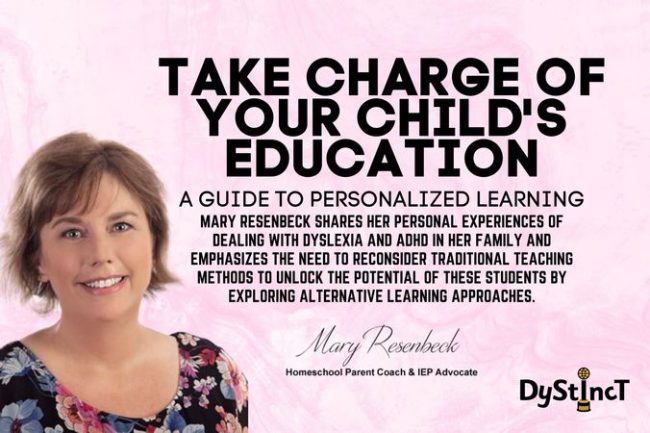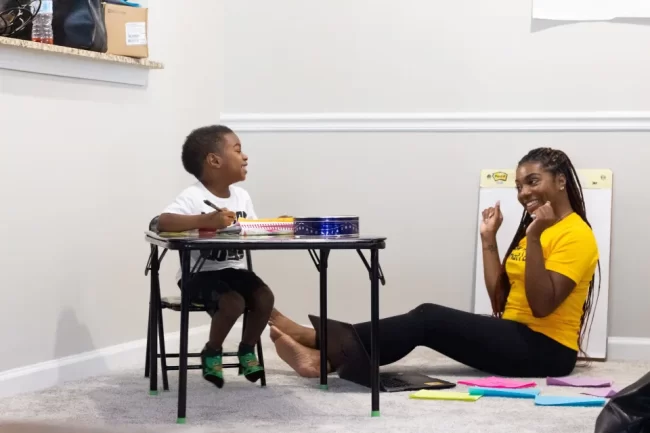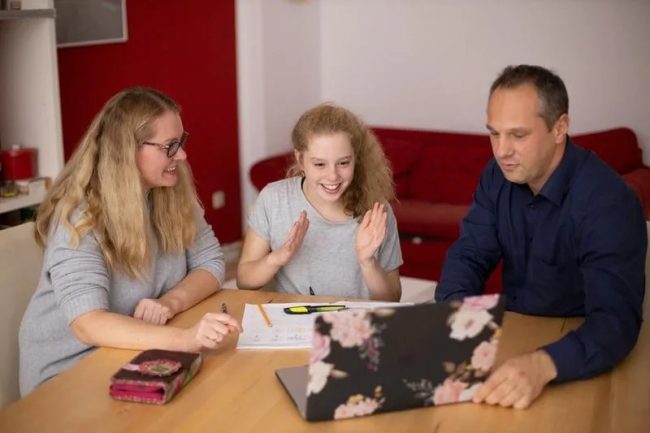Featured in Yahoo! and other National News Media!
This is an extraordinary spotlight video on the work I have accomplished in the last three years of starting my business.
MAGNIFY YOUR MESSAGE!
CHERYL HUNTER GROUP
July 2023
Many thanks to Cheryl Hunter, a fabulous mentor, and Barbara McCabe of Dr.Phil, Anderson Cooper, and Katie Couric, to name a few, who created this extraordinary spotlight video on the work I have accomplished in the last three years of starting my business, and how the Magnify Your Message team helped get me where I am today. Thank you to all involved. You are all an inspiration to me.
View Post:
https://fb.watch/lNB91FwWJG/?mibextid=Nif5oz


Dystinct Magazine Article
Issue 15: Take Charge of Your Child’s Education: A Guide to Personalized Learning | by Mary Resenbeck
May 2023
Mary Resenbeck shares her personal experiences of dealing with dyslexia and ADHD in her family and emphasizes the need to reconsider traditional teaching methods to unlock the potential of these students by exploring alternative learning approaches.
Continue Reading:
THE UNSCHOOLING MINDSET
Unschooling—A Unique Style of Curriculum
IN SECTION: THE UNSCHOOLING MINDSET
This method encourages children to explore everything that piques their curiosity, while still being guided and supported by their parents.
by Mary Resenbeck
Unschooling, an educational approach that doesn’t rely on classroom teaching or textbooks, is growing in popularity among parents who prefer this approach for their kids. It’s how I chose to educate my teenage children during their high school years, and it was the best move. As twice-exceptional (2e) individuals, my kids thrived with unschooling, which allowed them to focus on their talents, passions, and interests, and bolstered their self-confidence.
This method encourages children to explore everything that piques their curiosity, while still being guided and supported by their parents. In unschooling, homework includes projects like growing vegetables or writing an eBook. It has its roots in a philosophy that advocates creating well-rounded individuals through experiential learning, generally, by pursuing the activities and hobbies that excite them.
Unschoolers believe that you never stop learning, so they encourage children to take intellectual risks, and gain knowledge through experience rather than memorization.
This method is best if:
- You want your child to become an “out of the box” thinker.
- You believe that your child has enough natural curiosity and maturity to motivate themselves.
- You can provide the resources and opportunities that match your child’s interests as they evolve.

If you’re thinking about unschooling and/or world schooling, consider your child’s preferred learning methods, your responsibilities at home and work, your location, and whether you want to travel or stay in one place. Both approaches remove schooling stress because learning is no longer a chore; it’s a joy.
World-schooling is the practice of homeschooling while traveling from home, gaining firsthand experience with the whole family. This method exposes children to different cultures and lifestyles, which in turn helps them learn more about the world.
We were able to begin our youngest daughter’s homeschooling this way. She traveled with us to several different US states, visiting NASA in Houston, the Gateway Arch in St. Louis, and the Statue of Liberty in New York City. When we traveled to Europe, she went to Ireland, England, and France. The many sights, sounds, experiences, foods, cultures, customs, and languages were a whirlwind of experiential learning that she will never forget. It is seared into her memory and attached to family bonding as well. World schooling is a beautiful way to teach your child. Registering with a PSS (Private Satellite School) and matching an unschooling philosophy with world schooling was a natural choice at the time for our family.
Your family does not need to be wealthy to create a world-school environment, but it requires research and planning to be efficient and stress-free. This type of homeschooling is not for everyone, but it has proven to be a unique and beneficial learning experience for our family.
This method is best if:
- You frequently travel for work, and you don’t want to spend time away from your kids.
- You want your kids to experience life outside of the classroom.
- You want to expose your kids to many different cultures and customs so that they can have a well-rounded view of the world.
Unschooling and world schooling provide the best of both worlds.
As a parent, you take control of your child’s education. You get to make sure that it’s well-rounded, and you focus on the whole child. By having control of your child’s education, you do what’s best for him or her.
If your child is tired, you can stop teaching and resume that lesson some other time. You don’t have to follow the seven-hour sitting-down approach that you learned in school and that teachers still use today. You can decide to use a whole week to educate on a single topic. For example, let’s say you choose to teach in a museum environment so your child can see and feel what they are learning. Instead of doing a single half-day outing, you can go to the museum every day of the week, and each visit can focus on a different part of the museum.
By integrating your child’s schooling with everyday activities, education becomes a family affair. Chores become learning experiences, skills that they will use the rest of their lives. You can’t get that type of freedom and flexibility from traditional schooling.
Unschooling allows you to create a stress-free learning environment that you, your child, and the entire family can enjoy.
You get to integrate life skills with learning, and you can do this creatively with everyday tasks.
Unschooling lets you focus on the whole child and can include the entire family. You get to integrate life skills with learning, and you can do this creatively with everyday tasks. For example, children can learn about fractions while baking a cake with you or improve their math skills while learning to balance a checkbook or doing a household budget. They contribute to the family’s welfare when they do these activities, providing a significant self-esteem boost.
About Mary
Mary Resenbeck has twenty-two years of experience combined as a Montessori classroom teacher, theater instructor, Individual Education Program (IEP) parent coach and advocate, and a veteran homeschooling mom of three beautiful children. She shows parents how to choose successful homeschooling methods and solutions that work best for the child and the family unit. She has recently authored a book called, Take Charge of Your Child’s Education, How Parents Are Taking an Individualized Maverick Approach to Homeschool Their Children to Success.
Original Article Below:
Over 50% of Parents Say Their Child's Special Learning Need was 'Extremely Important' to Their Choice to Homeschool
Take Charge of Your Child’s Education
Wed, July 20, 2022 at 10:40 AM·4 min read
Homeschool Program Take Charge of Your Child’s Education Says At-Home Learning Offers “Educational Freedom, Particularly for Gifted and Special Needs Students
SAN DIEGO, CA / ACCESSWIRE / July 20, 2022 / When the COVID-19 pandemic surged, many schools throughout the country closed forcing many parents to turn to homeschooling as an option to educate their children. Researchers predicted that the high number of parents who were homeschooling their children would decrease after the schools reopened. However, this prediction is proving to be just the opposite. In the 18 states that shared data through the current school year, there was a 63% increase in homeschooling during the 2020-2021 school year, with only a decrease of 17% for the 2021-2022 school year.
For students, homeschooling also increased their sense of safety and reduced negative behavior. A recent survey from EdChoice, a nonprofit, nonpartisan organization that provides families with educational choices, found that 68% of homeschooled students felt an increased sense of happiness, while as many as 60% of families reported improved behavior since homeschooling.
Families of children with special needs are also drawn to at-home learning with 52% of respondents saying that their child’s special learning need was very or extremely important in their choice to homeschool. Under the Individuals with Disabilities Education Act (IDEA), special needs include those with disabilities, including the gifted and learning disabled.
Mary Resenbeck, a former teacher, Homeschool Parent Coach, and author of Take Charge of Your Child’s Education! says home-based learning is critical to the educational development and success of special needs students.
“When I discovered my children had dyslexia, I was terrified because there was nothing designed to help them master core subjects in the school system,” Resenbeck says. “My children’s self-esteem soared once we, as a family, decided to homeschool. It allowed them to focus on what they were great at and didn’t spotlight all their academic struggles, allowing them the confidence to enjoy their successes and master their gifts to succeed.”
According to the latest data from Education Week, 14% of all students in the U.S. are special education students. The data varies from state to state, from 9.8 percent in Texas to 19.5 percent in New York. Additionally, 38% of the 2.5 million homeschooling students have special needs. Almost three times higher than the 14% of students being served in public school special education programs nationally.
Continue Reading


The Resenbeck Maverick Homeschool Method says The COVID-19 Pandemic Was a Wake-Up Call.
Many Parents Now Realize They Can Homeschool Their Special Needs Child
SAN DIEGO, CA / ACCESSWIRE / October 25, 2021 / The pandemic restrictions have eased across America, and public schools have opened classrooms for the 2021 school year. Most parents breathed a huge sigh of relief. But some families realized their children thrived in a home learning environment, and sending them back to a traditional classroom wasn’t the best decision for their education.
According to a US Census Bureau (USCB) survey, 3.2 million parents were homeschooling their kids at the beginning of 2020. In 2021, that number had jumped to over 5 million. According to the National Center for Educational Statistics (NCES), that’s the number of families, but 75% of homeschooling families have more than one child. They estimate that at least 8 million children are now being homeschooled.
While homeschooling continues to gain mainstream acceptance, many parents still have doubts about homeschooling a child with learning disabilities or special needs. Mary Resenbeck of The Resenbeck Maverick Homeschool Method, a parent coach, and homeschooling advocate, says, “many people will try to steer you clear from your choice to homeschool your child with special needs. Well-meaning friends and family will tell you parents aren’t capable of adequately teaching academic subjects correctly to children of special needs. Colleges won’t accept your homeschooler with learning differences, or homeschooled children with learning disabilities don’t know how to socialize with their peers. These statements are all incorrect.”
She urges parents to do their research, “too many would-be homeschool parents surrender to homeschooling myths and don’t embrace the freedom, independence, and different methodologies homeschooling curriculum options offer.” Continue Reading

